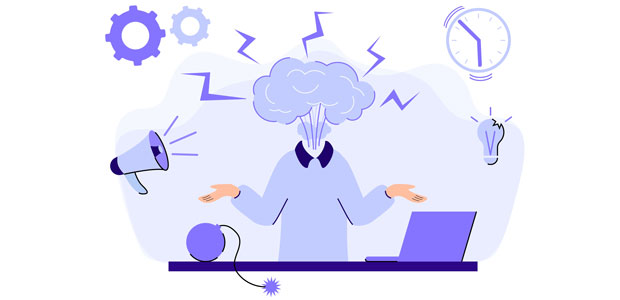
UK workforce sees 113% increase in stress-related leave over the past two years
Data from absence management platform, e-days, reveals that when comparing pre-pandemic levels in March 2019 to March 2021, the number of stress sickness days recorded has increased by 113%.
Additionally, the average number of people taking stress-related leave has increased by 74% when comparing Q1 2021 to Q1 2019. The number of people taking stress-related leave in 2020 and 2021 has remained the same, but the increase in days taken demonstrates that stress is taking longer to recover from and must be taken more seriously by employers.
This news comes at the start of National Stress Awareness Month when the country comes together to raise awareness of the modern stress epidemic.
In light of this concerning revelation, e-days polled UK employees and found that an additional 58% of the UK workforce is feeling exhausted rather than excited as the summer approaches. Additionally, when asked to choose between an additional day off every year, or £200 cash from their employer, almost two-thirds (62%) of the UK workforce opted for ‘me time’ over money.
This response suggests an increasingly stressed workforce, and further reinforces the importance of suitable workplace wellbeing support. So, whilst usual financial incentives may not be a viable option at the moment, businesses should be tracking leave and absence among employees to encourage wellbeing and workplace satisfaction over the coming summer months.
Steve Arnold, founder of e-days, commented: “With the majority of the UK workforce feeling exhausted and needing time out as we approach what is hopefully the light at the end of the tunnel, it’s vital that employers recognise the importance of a well-supported workforce. No business can afford to ignore the doubling of stress-related leave in such a short period of time - this affects us all.
"However, financial incentive is not the be-all-and-end-all of workplace benefits: the key to a motivated workforce is an employer that understands just how much absence matters.”


